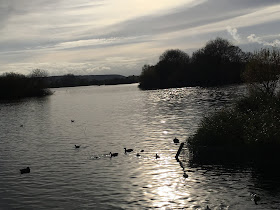Bert Flitcroft grew up in Lancashire and now lives in the Midlands. A graduate of Sheffield University, he is an experienced and accomplished poet who for some time has been quietly and unassumingly spreading the poetry word as teacher, mentor, workshop leader, poet-in-residence, and reader. He has two collections of poetry published: Thought-Apples with Offa's Press and Singing Puccini at the Kitchen Sink. He is a prize-winning poet, has been published in well-established national poetry magazines and performed on several BBC local radio stations.He ran for a number of years residential poetry-writing courses working alongside poets such as Carol Ann Duffy, Adrian Henry, Linda France and others. He was Staffordshire Poet Laureate 2015-2017 and curated The Staffordshire Poetry Collection. In 2015 he was Poet in Residence at The Southwell Poetry Festival. He has performed at a number of national Festivals including the Edinburgh Book Festival, Birmingham, Stoke, Lichfield, Ilkley, Buxton, Stafford, and has performed at The Door at The Birmingham Rep, as well as the CBSO Centre and The Conservatoire in Birmingham. In 2016 he was Poet in Residence at The Shire Hall Gallery, and recently has been Resident Poet at The Wedgwood Museum and The Brampton Museum and Gallery. Bert's website is www.bert-flitcroft-poetry.com
Waiting for Anna
This Moses basket fresh by the bed
is waiting,
like a promise, like a Truth
about to come true.
Not for a casting off among the reeds
but for a coming
home.
To open a door, to enter a room,
is always to begin again.
Already the basket’s empty space,
the very air inside it,
is sacred.
There is nothing more to say.
Silence has a voice.
Emptiness is eloquent.
Off
Imagine the pent-up energy,
the violence, of a single electron
spinning madly around its nucleus,
unable to break free.
Think millions of them, going nowhere
in the red-hot cauldron of their universe.
Until some outside force charges in
and scatters them,
or marches them in lines
directing them to travel North or South.
Imagine their excitement at the thought
of travelling, of having somewhere to go.
There are such moments,
when the world shifts.
Imagine Einstein pushing off his little boat
at midnight across a sea of relativity –
all those ricocheting atoms.
Or Rutherford as he fired his first alpha particles.
All those electrons suddenly weighing up
the possibilities, high-fiving, punching the air.




































